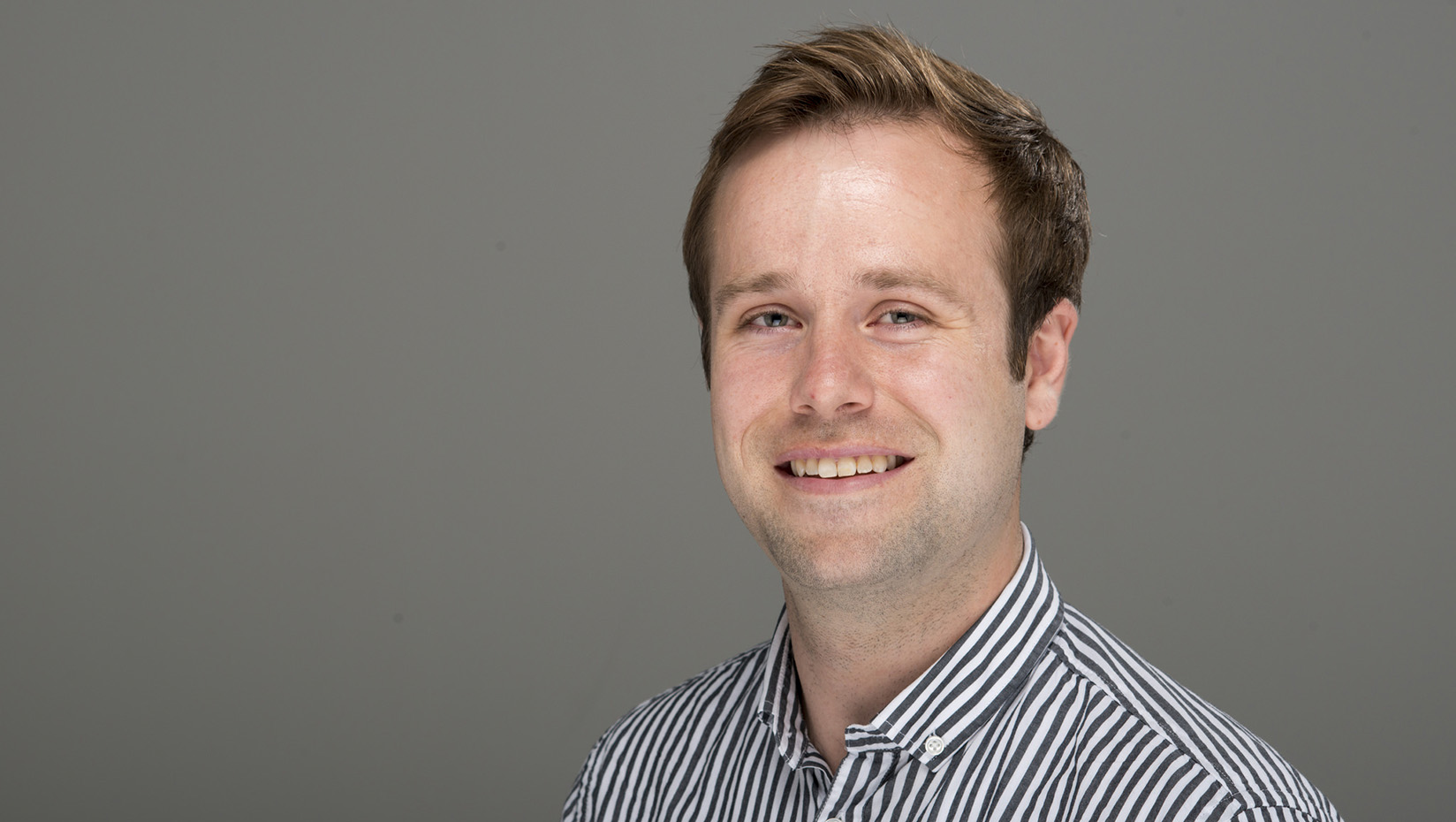
Colin Bosma: Psychology student mindful of emotion regulation strategies
Colin Bosma gained perspective growing up at an elevation of 8,230 feet in the Rockies in Nederland, Colorado.
Its motto: Life is better up here.
And he has developed mindfulness — a judgment-free, moment-to-moment awareness of his present thoughts, sensations and environment — through his study of psychology.
Mindfulness is central to research Bosma is conducting as a clinical psychology doctoral student at the University of Maine.
He’s exploring the relationship between cognition and emotion regulation strategies — including mindfulness — and the risk of relapse with depression.
Bosma chose UMaine for his doctoral studies because his academic interests align with the cutting-edge research of Emily Haigh, UMaine assistant professor of psychology and director of the Maine Mood Disorders Lab.
At the lab, researchers examine how people respond or recover from an induced, brief negative mood (transient negative mood).
They examine how response patterns relate to the onset, maintenance and recurrence of depressive episodes — or periods of two weeks or more marked by a profound and persistent sad or empty mood, feelings of hopelessness, difficulty concentrating, irritability, fatigue, changes in sleep, loss of interest in hobbies and thoughts about death or suicide.
In addition to learning more about effective treatments for depression, it’s important to Bosma that his findings be published in open access journals for broad dissemination.
Bosma says he hopes stigmas that people have about seeking mental health treatment are soon eradicated.
“If no one knows about or gets treatment then research related to psychotherapy is fruitless,” he says.
Depression interferes with people’s daily lives and can lead to suicide. The debilitating mental health problem affects approximately 350 million people worldwide, according to the World Health Organization (WHO), and annually more than 800,000 people die by suicide.
From 2009 to 2012, 7.6 percent of Americans 12 years of age and older were depressed in the prior two weeks, according to the Centers for Disease Control. Depression was found to be more prevalent among females and people age 40–59, and the CDC indicated the highest rate of depression (12.3 percent) was in women 40–59.
On a large scale in this culture, Bosma says people aren’t taught how to regulate emotions, and thus learn vicariously from peers and family.
“We’re basically navigating in the dark,” he says.
Bosma is seeking to learn more about and shine light on effective adaptive strategies.
He recently was selected for an American Psychological Association of Graduate Students (APAGS)/Psi Chi Junior Scientist Fellowship. APAGS seeks to provide high-quality graduate training experiences for the next generation of practitioners and scientists. And Psi Chi — the International Honor Society in Psychology — strives to produce educated, ethical members dedicated to contributing to psychology and society.
Bosma will receive $1,000 to use conducting his doctoral research. And feedback that professional reviewers provide will be valuable as he applies for a National Science Foundation Graduate Research Fellowship.
This past summer, Bosma was a group facilitator and individual project mentor with the Upward Bound Math-Science summer program.
Before attending UMaine, he was a senior research assistant at the Langer Mindfulness Institute at Harvard University and was a research collaborator with the Psychiatry Department at Harvard Medical School.
At the 2015 Mind and Life Summer Research Institute in New York, Bosma examined fear, trust and social relationships. The conference included academic presentations, breakout groups, meditation sessions and a silent retreat. His poster presentation was titled “Mindfulness as a protective factor for the burden of caregivers of Amyotrophic Lateral Sclerosis.”
Bosma earned a bachelor’s in psychology in 2012 at the University of Colorado Boulder, where he was a research assistant in Dr. Sona Dimidjian’s Clinical Research for Evidence-based Service and Training Lab.
Bosma became interested in psychology while attending an alternative high school in Colorado, where he received credit for working in a psychology lab.
After earning a doctorate, he plans to pursue postdoctoral studies, conduct independent research and teach.
“As a scientist and educator, I aspire to make substantial contributions to the field of psychological science through the study of emotion and emotion regulation,” Bosma says.
“Furthermore, throughout my career, I intend to actively disseminate my research in a manner that will effectively bridge the gap between research and application in treating mental health.”
Contact: Beth Staples, 207.581.3777
